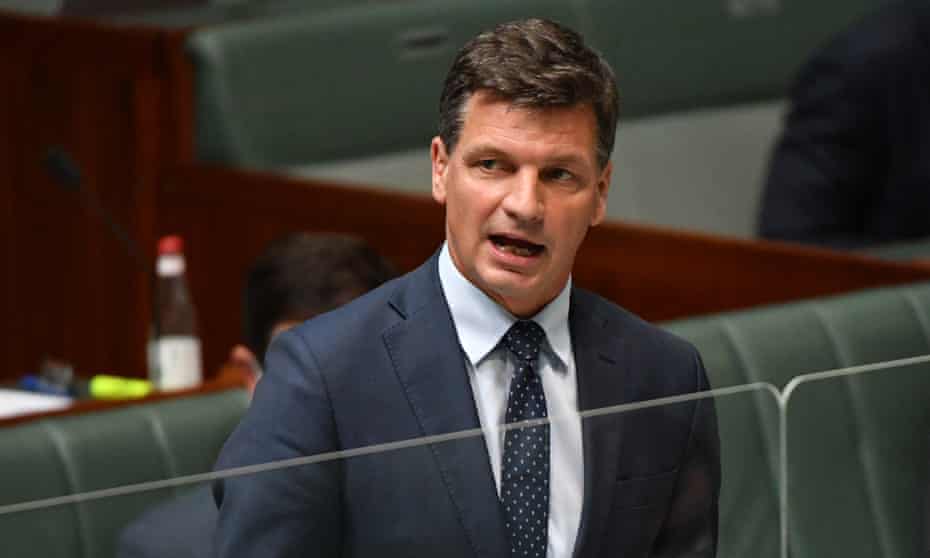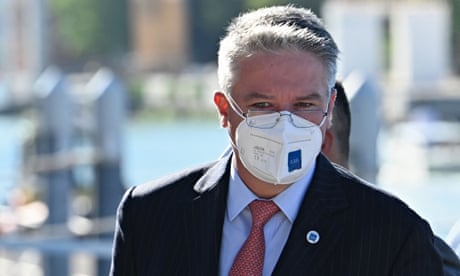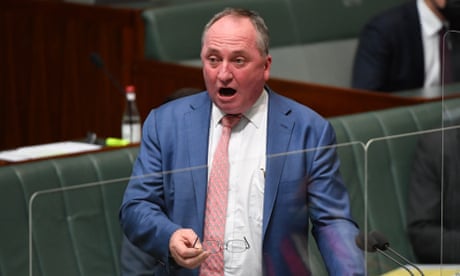Extract from The Guardian
Australia’s emissions reduction minister’s stance at odds with comparable developed nations.

Angus Taylor, minister for energy and emissions reduction says he will promote investment in gas projects in Australia at the Cop26 climate summit in Glasgow.
Last modified on Fri 29 Oct 2021 06.25 AEDT
Angus Taylor has declared he will use a major climate summit in Glasgow to promote Australia as a good place to invest in fossil fuel projects.
The emissions reduction minister said on Thursday he would attend the first week of the fortnight-long talks, known as Cop26, with a message that Australia was a “safe and reliable destination to invest in gas, hydrogen and new energy technologies”.
It followed his announcement that the Morrison government had rejected a call to join a US and European-led pledge to cut emissions of methane – a potent greenhouse gas released during gas and coal extraction and by livestock – by 30% by 2030.
Gas is a fossil fuel often described as having about half the emissions of coal when burned, though studies have found its impact on global heating is greater once methane leakage is counted.
Taylor’s statement is in line with the government’s long-term emissions reduction strategy released on Tuesday.

The strategy showed the government would largely rely on technology development – some of it linked to its technology investment roadmap, some of it unspecified – to reach net zero emissions by 2050, aided by offsets that would allow fossil fuels to continue to operate.
It indicated deep cuts in emissions would not happen until after 2030, and described liquified natural gas – the form in which gas is exported – as a “clean” fuel.
The plan has been criticised for including no new policies and no detailed explanation of how the 2050 target would be reached. The prime minister, Scott Morrison, said modelling had been undertaken and would be released in “a few weeks”.
The net zero goal was set after the Nationals narrowly backed a deal with the Liberals last Sunday. Morrison and the deputy prime minister, Barnaby Joyce, clashed over the details of the deal on Thursday, with the Nationals leader claiming the minor Coalition partner had ensured livestock methane emissions would be excluded. Morrison, who has refused to make public the terms of the agreement, said there was no carve out for agriculture.
In a statement issued before he left the country to join Morrison in Glasgow and at the G20 in Rome, Taylor said Cop26 was “an opportunity for all countries to come together to confront the challenge of reducing emissions while continuing to grow economies and create jobs”.
“The most important legacy this summit could have is a genuine, global commitment to a step up in collaboration on the technology solutions needed to achieve net zero,” he said.
His stance is at odds with the British hosts of the climate summit, who have pushed for countries to commit to much deeper cuts in emissions by 2030 in line with advice from climate scientists.
While the US, UK and European Union have set targets to cut emissions by at least 50% below their national peak this decade, a UN report this week found the world was falling short and would face disastrous temperature rises of at least 2.7C if more countries failed to strengthen their reduction pledges. China, the biggest emitting country, has committed to reaching net zero emissions by 2060 but its updated pledge to the UN does not substantially increase its 2030 goals.
The Morrison government has resisted international and local political, business and community calls to increase Australia’s 2030 emissions target above the goal set by then prime minister Tony Abbott six years ago – a 26-28% cut compared with 2005 levels. Official projections released this week suggested current policies would lead to a cut in national emissions of at least 30%, but Morrison ruled out increasing the formal 2030 pledge due to opposition from Nationals MPs.
The government has also rejected calls from the British and the UN to sign up to an agreement that wealthy nations should phase out coal by 2030 and developing countries by 2040.
Climate Analytics chief executive, Bill Hare, an adviser to developing countries at climate talks, said Australia was not playing its part on any of the key issues being considered in Glasgow, including emissions commitments for 2030, climate finance for developing countries, a mechanism to address loss and damage and establishing global carbon market rules with environmental integrity.
Hare said the Morrison government continued to support fossil fuels while falsely claiming to have mapped a path to net zero emissions. “If you can find anything positive I’d love to hear it,” he said.

Australia’s confirmation it would not increase its 2030 emissions reduction goal received diplomatic pushback and was sharply criticised in international media.
The UN secretary general’s special adviser on climate change, Selwin Hart, condemned Australia’s emphasis on future technology. “Where countries are depending on technologies that have not yet been developed, or indicating they intend to cut in the 2030 and 2040s, quite frankly, that’s reckless and irresponsible,” he said.
Alok Sharma, a British cabinet minister and president of Cop26, and the Fijian president Frank Bainimarama welcomed the 2050 commitment but called for more this decade.
Taylor’s announcement included confirmation that the government would update its formal commitment under the Paris agreement – known as a nationally determined contribution (NDC) – to include a 2050 net zero emissions target.
This is at odds with the role of NDCs as set out in the text of the 2015 Paris agreement, which says they are supposed to be updated in five-year cycles focused on the short-term. The current cycle is focused on 2030.
Countries also agreed in Paris to consider submitting long-term low-emissions strategies, but they were meant to be separate and additional to NDCs.
No comments:
Post a Comment